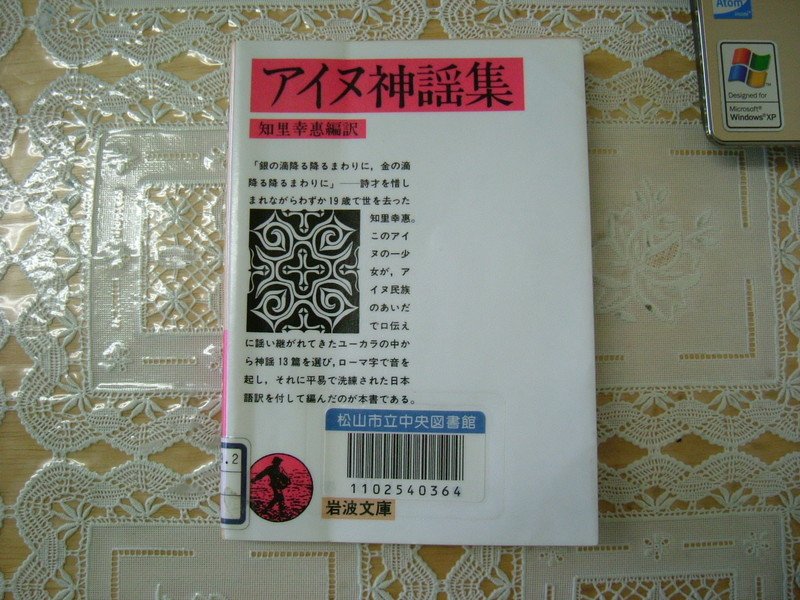It seems that Ainu people are not well-known in the world, but they had lived in northern Japan and eastern Russia since recorded history and had been keeping their own rich culture. However, they are almost totally absorbed in Japan at present because of the forced assimilation of the then Japanese Government. I know it was for the defense against the Russian invasion, though. The policy of national defense in Meiji era is acceptable, but I wonder if there was any other choice?
It was not until 1997 that I had interest in Ainu. For, I rode my motorcycle in Hokkaido, located in the north of Japan, for a week and I visited many Ainu related sites at that time. I heard that 99% of the names of places in Hokkaido originate from Ainu language. In fact, place names in Hokkaido have something different from that of other areas. I wrote about Ainu Museum and Ainu cuisine in this blog before. To my regret, the culture of them has already disappeared or come close to perishing.
I knew an Ainu woman who ventured to record their culture about 100 years ago. Ainu people didn't have their own letters and so, her work to preserve their cultural heritage was very tough. She investigated many stories by word of mouth from the elderly and wrote a book. I read it through and I admired her work.
http://kumo.typepad.jp/weblog/2007/08/porotokotan.html
http://kumo.typepad.jp/weblog/2008/03/ainu-cuisine.html
(Vocabulary)
rich culture 豊かな文化
assimilationism / forced assimilation / integration policy
(異なる文化・人種に対する)同化政策
by word of mouth 口伝で
アイヌ民族はおそらくあまり世界的には知られていないだろうが、日本の北部、ロシア太平洋岸で暮らしていた文化度の高い民族である。現在は日本に吸収されている。時の政府の過度な同化政策のためである。北方からの侵略に備えるためであった。
97年に北海道をバイクで走ってから興味を持つようになった。
文字を持たなかった民族の記録を残そうと立ち上がった一人のアイヌの女性が残した本を読んだ。文字を持たなかったが故にその文化は消えかかっている。民族が存在した事実は記録として残していかねばならない。


Comments